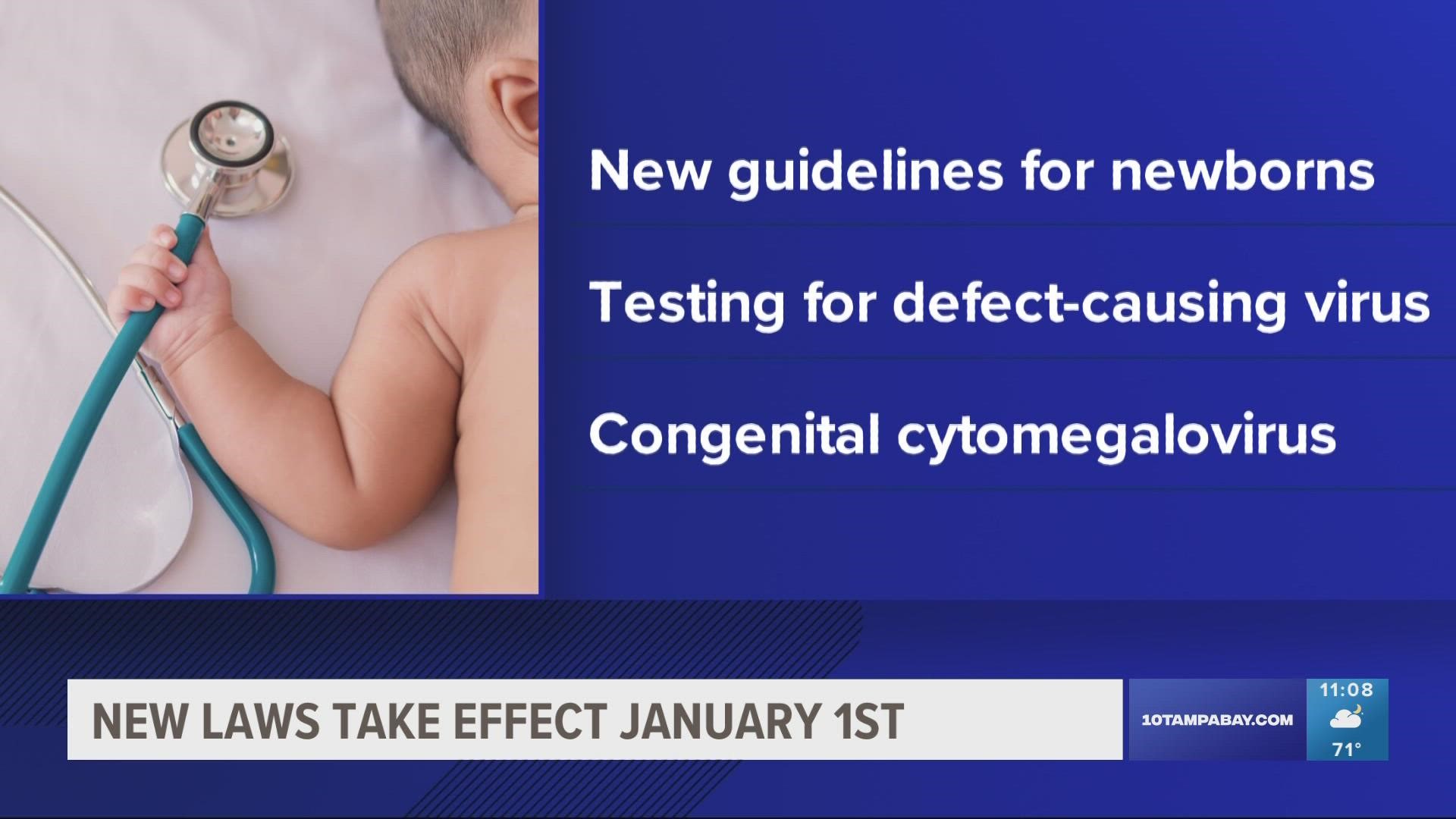TALLAHASSEE, Fla. — A new year means new changes for the state of Florida.
Several new laws are set to take effect on New Year's Day, focusing on issues like newborn health care, toll relief and, of course, the shaky property insurance system.
These measures were passed either during the 2022 legislative session or during special sessions lawmakers held throughout the year and then signed into law by Gov. Ron DeSantis. Lawmakers sent 280 bills to the governor's desk this year — more than 100 of them took effect on July 1.
Another much smaller group of laws is taking effect on Jan. 1, 2023. Here's a look at them:
Electronic filing of taxes (SB 2514)
The law lowers the threshold for Florida taxpayers to file electronically from $20,000 to $5,000. This is meant to create more operational efficiency and save money by cutting down on the number of paper returns and checks received.
Newborn screenings (SB 292)
In the new year, hospitals and state-licensed birthing facilities will be required to screen newborns for cytomegalovirus (CMV) if the baby fails their hearing test.
CMV is a virus that can cause growth and development problems in babies, the most common of which is hearing loss.
Toll relief for commuters (SB 6-A)
This law will credit commuters 50% of their tolls if they record at least 35 times toll road trips during a month. DeSantis said it ensures Floridians, and not tourists, will benefit from the rebate program.
While this law technically went into effect on Dec. 15, the major changes take effect in January.
Ending assignment of benefits for property insurance (SB 2-A)
This is part of a larger property insurance bill that the governor signed into law in December. Effective Jan. 1, the practice known as "assignment of benefits" will be eliminated. It involves homeowners signing claims over to contractors, who, in turn, pursue payments from insurers.
Expansion of disaster assistance for homeowners (SB 4-A)
This was also signed into law during the special session on property insurance in December. The measure makes property tax rates available to homeowners whose homes were rendered uninhabitable by Hurricane Ian and Hurricane Nicole.
Public notices on county websites (HB 7049)
This law removes the requirement that legal notices from local governments be published in a print newspaper or on a newspaper's website. Instead, government agencies can publish them on the county's website.
Governments in counties with fewer than 160,000 residents must first hold a public hearing to determine if residents have sufficient access to the Internet.
Lobbying restrictions for public officers (HB 7001)
This law prohibits certain public officials from working as lobbyists and expands the time that they have to wait to start lobbying after leaving office from two years to six years. The law will apply to people like lawmakers, agency heads, judges and local officials.
Changes to money services businesses (HB 273)
This law changes financial rules for cryptocurrency in the state. In part, it specifies that a person wanting to sell cryptocurrency does not need a money transmitter license to do so. Crypto commerce programs, on the other hand, are required to have licenses.
Other notable changes coming to Florida law on Jan. 1 include provisions to Miya's Law requiring landlords to conduct background checks on all employees.
On Jan. 1, Florida will also make a training program available to school librarians and media specialists tasked with selecting "age-appropriate" reading materials for libraries. This was something required under an education bill (HB 1467), which went into effect on July 1.

